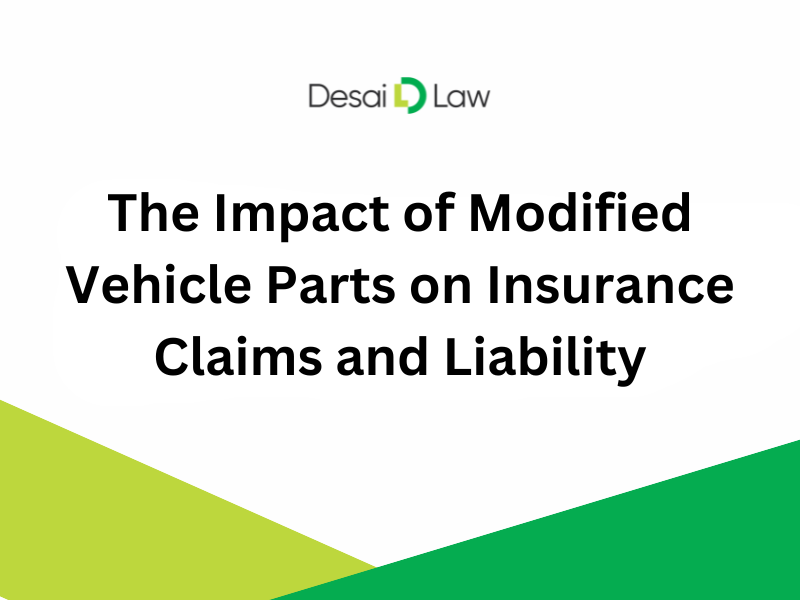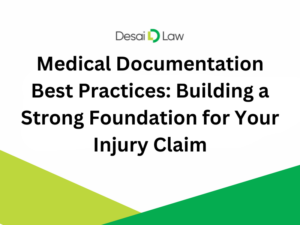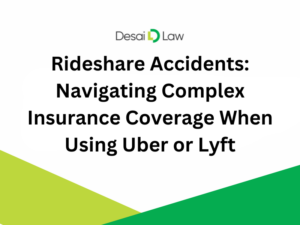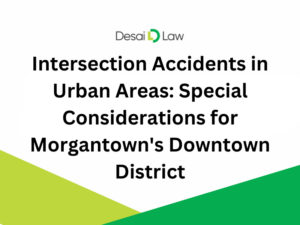Many people love to customize their cars. Some add new rims, while others change the engine for more power. But did you know that changing your vehicle’s parts might affect your insurance claims and even who is responsible if there is a crash?
Here, our West Virginia car accident lawyers will explain the basics of how modified parts can change your coverage, how West Virginia law sees these changes, and what you should keep in mind if you choose to upgrade your vehicle.
Why Do Modified Parts Matter for Insurance Claims in West Virginia?
If you get into a car accident, your insurance might pay to fix the damage. But if you have changed your car with special or pricey parts, your insurance company may not want to pay for all of that. They might say that the parts are not covered or that you did not tell them about the upgrades. This can lead to disagreements.
In West Virginia, the law has rules about different types of parts. Under West Virginia Code § 46A-6B-3, there is a difference between “genuine crash parts” and “aftermarket crash parts.” Genuine parts are made by or for the vehicle’s original maker. They have the car company’s name on them. Aftermarket parts are not made by the original car company. They can be cheaper, but they might not always meet the same quality standards.
What Does West Virginia Law Say About Aftermarket vs. Genuine Parts?
Some people like aftermarket parts because they can be cheaper or provide special features. However, they can also cause problems with insurance or warranties.
In Liberty Mut. Ins. Co. v. Morrisey, 236 W. Va. 615, the court talked about how using salvage or recycled “original equipment manufacturer (OEM)” parts might still not keep the car under the original warranty. The law wants to protect you so that if your car has “genuine parts,” you keep the warranty for how the parts fit and how safe they are.
But if you use salvage or recycled parts, it could raise questions about whether they meet the same standards. This can lead to disputes with insurance companies after an accident. Your insurance might say, “We do not cover this because it is not from the original maker,” or “We do not have to pay the full amount because these parts do not cost as much.” This can turn a simple claim into a longer argument.
Can Salvage Parts Affect Who Is Responsible?
Yes. The way a car is fixed can also change who might be responsible if something goes wrong.
For example, in Mace v. Ford Motor Co., 221 W. Va. 198, a car was totaled and sold to a salvage company, which then sold parts from that car. If someone buys those parts and puts them on another car, there can be big questions about how safe those parts are.
If the new car with those salvaged parts has an accident, people might wonder:
- Did the salvage parts fail?
- Is the person who sold the salvage parts liable in any way?
- Should the insurance company have told the buyer about any risks?
When a car is repaired with salvage or aftermarket parts, and those parts are defective or not installed correctly, it can lead to serious safety issues on the road. This could mean multiple parties share blame—like the repair shop, the parts supplier, or even the car owner.
How Do Modifications Affect Your Car’s Warranty in West Virginia?
Car companies often give warranties saying they will fix certain problems for a set time or number of miles. But if you change major parts of the car, the company might say your warranty no longer applies. For instance, if you replace the original exhaust with a special high-performance version, the manufacturer might refuse to fix engine problems that come from that change.
Liberty Mut. Ins. Co. v. Morrisey shows how “genuine crash parts” are supposed to keep the car under the original warranty. If you use parts that do not meet these guidelines, you might lose that warranty. This can also affect claims if you have an accident. Insurance companies might say you were supposed to keep genuine parts to maintain coverage for certain repairs.
Do You Have to Tell Your Insurance About Upgrades?
Usually, yes. Many insurance policies require you to inform the company if you make big changes to your vehicle. If you do not, they might say you broke the rules of the policy.
Sometimes, the company will charge you more if you add expensive parts because it raises the total value of the car. But if you do not tell them, and an accident happens, they might refuse to pay for the new parts or reduce how much they pay you.
Each insurer has different rules. Some might cover your modifications, but you have to buy extra coverage. Others might say they will only pay to replace parts with “like kind and quality” items. That might mean they will not give you brand-new custom parts if your old ones get ruined. You should read your policy or call your agent to learn your coverage details.
Does “Aftermarket” Always Mean Low Quality?
No. Some aftermarket parts can be as good or even better than the original. The problem is not all aftermarket parts are created equal. Some are tested to meet high safety standards, while others might be cheaply made.
If you choose cheaper parts to fix your car, the insurance company might be happy to pay less. However, you need to think about whether that part will hold up in a future accident or if it might fail.
Some states have laws about how insurance companies must disclose if they are using aftermarket parts for repairs. West Virginia law is unique in that it focuses on the difference between genuine and aftermarket parts. This helps you, as the vehicle owner, know exactly what is going into your car.
What If Modified Parts Lead to an Accident in West Virginia?
Imagine you install a lift kit that raises your truck’s height. It might look cool, but if it is not installed properly, your truck could handle poorly and cause a crash. If that happens, you might be on the hook if another driver sues you. They could argue you were negligent because you changed your truck in a way that made it unsafe. Or if the kit was flawed, the company that sold or installed it could share blame.
Negligence basically means someone did not act like a careful person would. If the court decides your modification was unsafe and you kept driving anyway, you might pay out of pocket for damages. West Virginia courts look at the specific facts—like if you installed the parts correctly or if you checked to see if they were legal for street use.
How Can Our West Virginia Car Accident Lawyers Help You After a Crash Happens?
When a crash happens, dealing with both insurance and legal issues can be stressful, especially if modified parts are involved. Our West Virginia car accident lawyers can help you if the insurance company tries to deny your claim or blame your modifications. We can also help gather evidence like repair receipts or proof that your modifications did not cause the crash.
If someone else’s modification caused a crash that hurt you, our West Virginia car accident attorneys can investigate how that part was installed. We can see if the other driver or a repair shop might have been careless. If so, you can seek compensation for medical bills, lost wages, and other damages.
Our West Virginia Car Accident Lawyers Are Here to Help if You Have Questions About Your Modified Vehicle
Changing your car can be a fun way to make it truly yours. However, it can also create complications with insurance claims and who is liable if an accident occurs. You can make smarter choices by knowing how West Virginia laws view aftermarket vs. genuine parts, salvage parts, and modifications. Always keep safety in mind and talk to your insurance company about any major changes.
At Desai Law, our team of West Virginia car accident lawyers is here to help if you have questions about your modified vehicle or if you have been in an accident. Call us today at (304) 974-1974 for a friendly, professional discussion about your rights and options. We want to make sure you are covered and prepared, no matter what twists and turns the road may bring.

